Fluid dynamics is the study of how fluids (liquids, gases, and plasmas) move and interact with each other and their surroundings, including the generation and propagation of sound waves within them. Applications of fluid dynamics and acoustics are pervasive in modern society and their understanding is essential for a wide range of engineering applications. Fluid dynamics research in the field of Mechanical and Aerospace Engineering (MAE) encompasses a diverse array of topics, including those related to biology, the environment, transportation, development of advanced flight-vehicles, and space exploration. Our research will lead to improvements for individuals and society, and in addition, a greater physical and mathematical understanding of fluid motion. Meanwhile, the study of acoustics can be conducted independently or in conjunction with fluid dynamics research in the field of aeroacoustics, which focuses on how noise is generated by fluids.
Research in fluid dynamics and acoustics has far-reaching implications for society, such as the development of more fuel-efficient modes of transportation, improved understanding of disease transmission, sustainable satellite technology, quieter transportation noise, and energy generation systems. At the University of Florida’s MAE department, we are conducting ongoing research in these fields, and below are some examples of the projects we are working on.
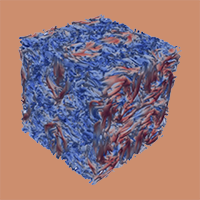
We have the ability to perform complicated simulations involving direct numerical simulation (pictured) and large-eddy simulation of single and multiphase codes.
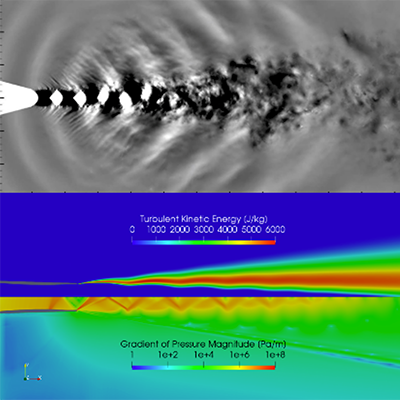
We perform computational fluid dynamic (CFD) simulations to predict the motion of liquids, gases, and plasmas. We can perform RANS, LES, and DNS.

We use high performance computing to predict flow. We have significant high performance computational resources available through UF Research Computing.
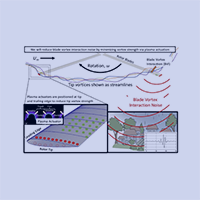
Our groups study rotorcraft and electric vertical and take-off and landing vehicles. We can create, analysis, and measure complicated flow-fields around flight-vehicles.
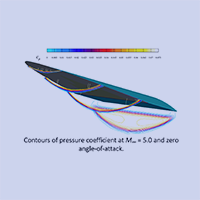
Hypersonic flow-fields are those where the hypersonic similarity parameter, K, is near unity. Hypersonics represents the study of flow-fields that exhibit additional physics beyond supersonic flows. We are interested in the aerodynamic prediction of hypersonic flow-fields.
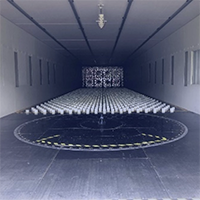
Our department has performed experiments in natural fluid dynamics including those investigating the natural atmospheric boundary layer, tornadoes, and more.
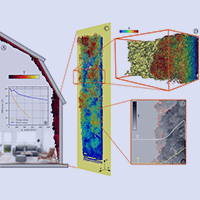
We have performed some of the largest simulations of how hot plumes spread on vertical and inclined walls using the entire HiperGator supercomputer at UF
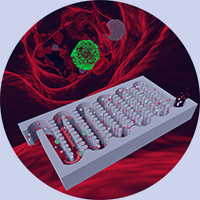
The field of microfluidics involves the design and fabrication of devices with microfeatures, studying microscale flows, and engineering them for various applications
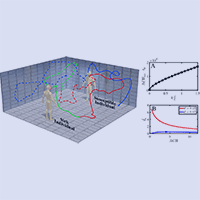
We have been investigating how diseases and pollutants spread in indoor settings to develop more advanced social-distancing guidelines
Areas of Excellence
- Aeroacoustics
- Aerodynamics
- Analytical & Theory
- Bio-Inspired
- Combustion
- Experimental Techniques
- Flow Control
- Fluid Structure Interactions
- Geophysical Phenomena
- High Energy Events
- Hypersonics
- Micro-Gravity Fluids
- Micro-Scale Fluids
- Numerical Techniques
- Propulsion
- Sonic Boom
- Space Weather
- Turbulence
Facilities
- Anechoic Wind Tunnel
- Experimental Fluids & Acoustics Facilities
- Interdisciplinary Microsystems Group Facilities
- Supersonic Wind Tunnel
- UF Research Computing
Associated Centers and Institutes
Group Email
fluid-dynamics-acoustics@mae.ufl.edu
Related Faculty

Senior Lecturer Emeritus (Department Time: 1990 – 1997, 2006 – 2024)
Education
Ph.D, 1991, University of Virginia,
Professional Memberships and Fellowships
American Institute of Aeronautics and Astronautics, Member
American Society of Engineering Education, Member
American Society of Mechanical Engineers, Member

Education
PhD, 1988, Brown University,
Professional Memberships and Fellowships
American Institute of Aeronautics and Astronautics, Member
American Physical Society, Fellow 2006
American Society of Mechanical Engineers, Fellow 2008
American Society of Thermal and Fluids Engineers, Member
Teaching Interests
Computational fluid science (aka CFD), Large scale simulation of complex flows, transition and turbulence, multiphase flows, environmental flows

Education
Ph.D., 1988, University of Illinois at Urbana-Champaign
Professional Memberships and Fellowships
American Institute of Aeronautics and Astronautics, Member
American Society of Engineering Education, Member
American Society of Mechanical Engineers, Member
Research Interests
My current research interests center on engineering education with emphasis on peer mentoring and advising processes, incorporation of AI augmented recommender systems in academic and career mentoring, and factors affecting matriculation of students from undergraduate to graduate study.…

Dr. Chung is currently the Andrew H. Hines, Jr./Progress Energy Eminent Scholar Chair Professor at the University of Florida. He joined the University of Florida in 1998 after 19 years on the faculty at the Washington State University. Dr. Chung holds both B.S. and M.S. degrees in Nuclear Engineering and had spent 6 years working as a nuclear reactor safety engineer in the industry before receiving his Ph.D.…

Professor Fan joined UF in 2003. His research focus is to develop microfluidics and BioMEMS technologies and apply them to biomedical applications. Microfluidics involves device fabrication and manufacturing, study of fluid behavior in microscale, and exploiting the devices for a variety of applications including point-of-care testing, environmental monitoring, and detection of pathogens in the field.
Education
Ph.…

Applied AI and data analytics,Sensors,Energy,Space,Materials Under Extreme Environments,Lifelong workforce development

Claire Grégoire is an Assistant Professor in the Department of Mechanical and Aerospace Engineering at the University of Florida. She received her Ph.D. from Texas A&M University, US, and her M.S. from the University of British Columbia, CA.…

Ryan Houim received his BSME from North Dakota State University and his MS and Ph.D. degrees from the Pennsylvania State University. He was a National Research Council post-doctoral fellow at the Naval Research Laboratory and a Research Assistant Professor at the University of Maryland prior to joining the University of Florida. His research is focused on understanding the dynamics of multiphase and chemically reactive flows using numerical simulation techniques. …

Dr. Thomas L. Jackson (Citizenship: USA). Dr. Thomas L. Jackson is a Research Scientist in the Department of Mechanical and Aerospace Engineering. Previously he was Technical Manager for the Center for Compressible Multiphase Turbulence at the University of Florida. He received his Ph.D. in Mathematics from Rensselaer Polytechnic Institute in 1985, after which he joined the staff of the Institute for Computer Applications in Science and Engineering (ICASE).…

Originally from Korea, Sunjae moved to West Lafayette, IN in 2020 for his doctoral study at Purdue. Following his graduate work, he started as an Assistant Professor in the Department of Mechanical & Aerospace Engineering at the University of Florida in January 2026.
His research focuses on understanding the effects of gravity on multiphase thermal-hydraulic characteristics, with a particular emphasis on cryogenic flow boiling physics.…

Professor Emeritus (Department Time: 1990 – 2024)
Education
Ph.D., 1990, University of Illinois
Research Interests
Two-phase flow, turbulence, computational fluid mechanics.

Professor Mohseni received his Ph.D. in 2000 from California Institute of Technology. After a year as a Postdoc in Control and Dynamical Systems at Caltech he joined the Aerospace Engineering Sciences department at the University of Colorado in Boulder as an Assistant Professor. Professor Mohseni joined the University of Florida as W. P. Bushnell Endowed Professor in MAE and ECE departments in 2011.…

Dr. Patrick Musgrave received his PhD from Virginia Tech in 2018 and BSc & BSE from the University of Pittsburgh in 2012. Dr. Musgrave’s research focuses on adaptive and morphing systems operating in fluidic environments, in particular systems subject to dynamic fluid-structure interactions. These systems are inherently multi-physical and sit at the intersection of structures, hydro/aerodynamics, mechatronics, smart materials, and controls.…

Alicia Petersen is an Assistant Professor of Mechanical and Aerospace Engineering (MAE) at the University of Florida. Through data analysis, instrumentation and modeling, Dr. Petersen researches the kinetic physics, magnetism and dynamics at play during the transit and interaction of space weather phenomena in the inner solar system, their impacts on spacecraft, and strategies for mitigating the impacts of space weather.…

Professor Subrata Roy studies ionized gas physics and its various applications: (1) Atmospheric plasma actuators for flow mixing, propulsion, and turbulent flow control; (2) Hypersonic flows; (3) Space propulsion; and (4) Hydrodynamic models for micro and nanofluidics by incorporating Knudsen’s theory. Prof. Roy is a Fellow of the National Academy of Inventors (NAI), a Distinguished Visiting Fellow of the Royal Academy of Engineering, a Fellow of the Royal Aeronautical Society, a Fellow of the ASME, and an Associated Fellow of the AIAA.…

Jonathan Scheffe is an Associate Professor in the Department of Mechanical and Aerospace Engineering at the University of Florida. Prof. Scheffe’s research is focused on the conversion and storage of solar energy in the form of renewable fuels/electricity through thermochemical routes. He is the former chair of the American Society of Mechanical Engineers (ASME) Solar Energy Division and has co-authored more than 35 peer received publications in the field of solar thermal energy conversion.…

Education
Ph.D., 1991, University of Virginia
Professional Memberships and Fellowships
American Institute of Aeronautics and Astronautics, Member
Combustion Institute, Member
Research Interests
Combustion, fluid diagnostics, Fluid mechanics, aircraft design.

Mark Sheplak is currently a Professor holding joint appointments in the Department of Mechanical and Aerospace Engineering and the Department of Electrical and Computer Engineering at the University of Florida. Prior to joining UF in 1998, he was a postdoctoral associate at the Massachusetts Institute of Technology’s Microsystems Technology Laboratories, Cambridge, MA from 1995-1998.…

Dr. SA Sherif is Professor of Mechanical and Aerospace Engineering and MAE Excellence Term Professor at the University of Florida. He is a Life Fellow of the American Society of Mechanical Engineers (ASME); a Life Fellow of the American Society of Heating, Refrigerating and Air-Conditioning Engineers (ASHRAE); a Fellow of the Royal Aeronautical Society; a Fellow of the American Society of Thermal and Fluids Engineers (ASTFE); an Associate Fellow of the American Institute of Aeronautics and Astronautics (AIAA); a Life Member of the American Society for Engineering Education; a Vice President of Commission B-2 of the International Institute of Refrigeration; a Member of the Board of Directors of the International Association for Hydrogen Energy; and a Founding Member of the Board of Directors and Vice President of Programs for the American Society of Thermal and Fluids Engineers (ASTFE).…

Youngsup Song is an Assistant Professor in the Department of Mechanical and Aerospace Engineering at the University of Florida. He obtained his Ph.D. in Mechanical Engineering from MIT, where he investigated multiphase heat transfer. Following his graduate work, he trained as a postdoctoral researcher at Lawrence Berkeley National Laboratory before joining the University of Florida.…


Professor Xin Tang received his Post-doctoral training from Harvard University and Ph.D. from University of Illinois at Urbana-Champaign. His research centers at the interface of engineering, physics, chemistry, and biology. His lab studies cell and molecular mechanics in cancer, cardiovascular system, and neurons; unconventional mechano-electrophysiology; quantitative in vivo/vitro functional bio-imaging; AI/ML-powered bio-nanotechnology; and development of new biophysical tools to probe biological function/structure.…

Professor Thakur received his Ph.D. in 1993 from University of Florida. His research interests include computational fluid dynamics, heat transfer, and combustion modeling.
Education
Ph.D., 1993, University of Florida,
Research Interests
Computational fluid dynamics, heat transfer, combustion modelling.

Professor Emeritus (Department Time: 2018 – 2024)
Professor Trainham’s research interests are in renewable energy. Before joining UF, Trainham spent most of his professional career in industry: four years as chief technology officer JDC Phosphate, four years as vice president, distinguished fellow and director of the Research Triangle Solar Fuels Institute at RTI International, senior vice president of Sundrop Fuels (a solar fuel company), served as global vice president of Science and Technology at PPG Industries, and had a 25-year career at the DuPont Company.…

Dr. Matthew J. Traum is an experienced educator, administrator, fund raiser, and researcher serving the Department of Mechanical and Aerospace Engineering at the University of Florida as an instructional faculty member. Traum serves as Principle Investigator of UF’s GatorKits Laboratory focused on pedagogical research and best practices for hands-on kit-centered STEM instruction. A serial entrepreneur and inventor in the Ed Tech, Energy Tech, Bio Tech, and Ag/Food Tech industries, Dr.…

Lawrence Ukeiley is currently a Professor in the Mechanical and Aerospace Engineering Department at the University of Florida. His primary research interests are in experimental fluid dynamics and turbulence as related to flow control, aeroacoustics, fluid structure interactions and the development of low order models. He received his B.S. in Mechanical Engineering from Alfred University in 1989 and his MS and PhD in Mechanical Engineering from Clarkson University in 1992 and 1996 respectively.…
